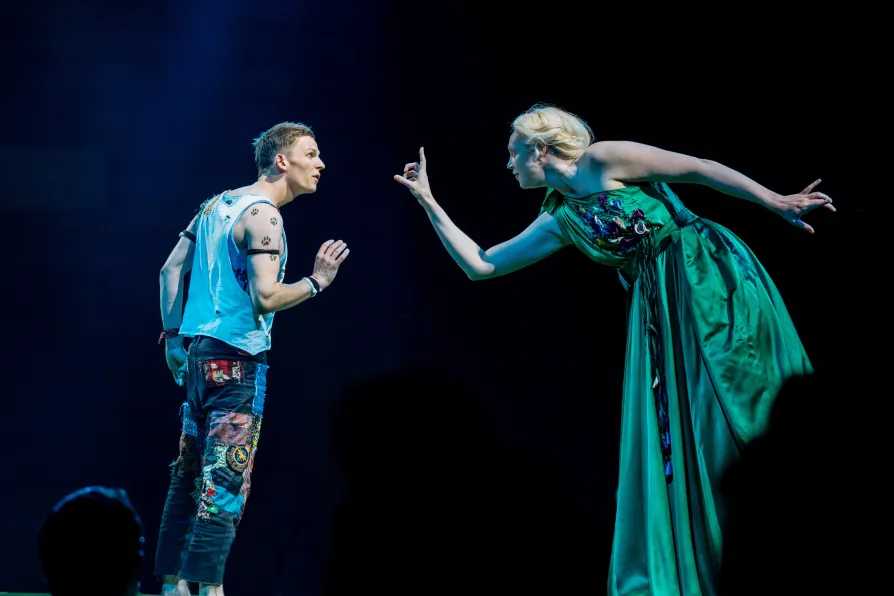Jimmy watches Countdown and tries to ignore his bills, grief, COPD and frailty. Meanwhile, his carer walks a tightrope between kindness and reality

 Lighting up the stage: David Moorst and Gwendoline Christie
[Manuel Harlan]
Lighting up the stage: David Moorst and Gwendoline Christie
[Manuel Harlan]
A Midsummer Night’s Dream
The Bridge Theatre London
THE BAD news is that, as with Brexit, responses to production will fall into two bitterly divided camps. The good, though, is that unlike with those negotiations, this tale of desperate lovers is thrillingly theatrical and worth anyone’s time.
Not only does Nicholas Hytner have a ball, he invites all to join in the unconstrained hedonism of a last blow-out party on the edge of doom. It’s a welcome antidote to the current world at large.
Just as with Hytner’s earlier Julius Caesar at the Bridge, this is a promenade performance where half the audience stand. And the action is everywhere — from high-wire acts, soaring glass booths and ivy-laden brass beds to floating moon balls, glamorous fairies and a gravity-defying Puck.

JAN WOOLF finds out where she came from and where she’s going amid Pete Townshend’s tribute to 1970s youth culture

MARY CONWAY revels in the Irish American language and dense melancholy of O’Neill’s last and little-known play

MARY CONWAY relishes two matchless performers and a masterclass in tightly focused wordplay











